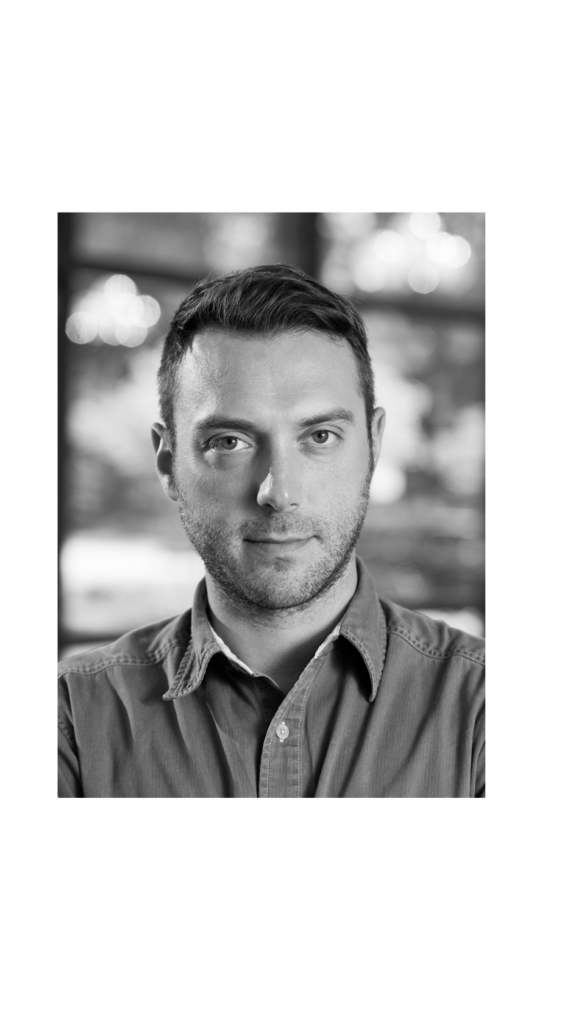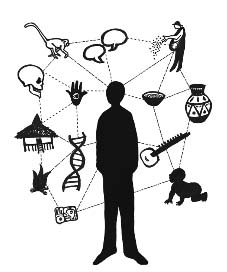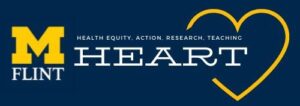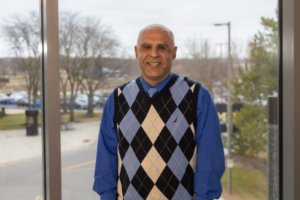Daba Coura Mbow

Benjamin Gaydos is a nationally recognized designer and associate professor of Art and the University of Michigan-Flint. He holds an MFA in Visual Communication/Design from Virginia Commonwealth University. He is co-founder of the social impact design studio, goodgood, with offices in Boston and Detroit, and is the driving force behind the Community Design Studio at the University of Michigan-Flint. Benjamin’s contributions extend across disciplinary boundaries. His academic journey and work is the fusion of design, cultural anthropology, and social impact. Benjamin’s unique position in academia is highlighted, where design expertise converges with anthropological methodologies and a dedicated commitment to social impact. His research methods are rooted in cultural anthropology and human-centered design and focus on community-based design processes.

His foray into social impact design began in Boston, co-founding a design firm with a focus on social justice. The work has continued with the creation of the Community Design Studio at the University of Michigan- Flint. Design justice became a central theme in Benjamin’s work, challenging conventional design thinking. Ongoing projects in Flint and Detroit demonstrate his commitment to co-designing solutions with marginalized communities, emphasizing deep listening and collaborative problem-solving. He acknowledges the inherent challenges in community engagement, exploring potential disagreement and skepticism surrounding Benjamin’s methodologies, with a keen awareness of power dynamics and institutional trust.
Benjamin’s interdisciplinary methodology seamlessly integrates design principles with anthropological methodologies, emphasizing inclusivity, collaboration, and an understanding of historical and social contexts. Notable projects, like the Detroit-based Rescue My Nature initiative, showcase his targeted use of urban architecture to address urban challenges effectively.

The narrative delves into the complex challenges posed by urban decay, divestment, and climate change, highlighting Benjamin’s commitment to revitalizing communities and fostering resilience. Beyond academia, Benjamin’s impact extends to the communities he collaborates with, inspiring transformative design practices and receiving institutional support. For instance, he recently secured a $50 thousand grant from the Arts Research: Incubation & Acceleration (ARIA) initiative, a joint effort between the University of Michigan Arts Initiative and the Office of the Vice President of Research. This program aims to elevate and expand arts research and creative practice across the university’s campuses and schools by supporting projects that explore new ideas and collaborations within and beyond the arts. Benjamin’s grant opportunity deeply aligns with his commitment to reclaiming erased histories and reshaping narratives through public art and history initiatives, particularly in honoring the rich heritage of the St. John Street community in Flint. Through the St. John Street Neighborhood Memorial Project, Benjamin seeks to explore equitable reimaginings of place-based monuments in the 21st century, dedicated to unearthing, preserving, and sharing the untold stories and histories of a neighborhood nearly erased from public memory. The project envisions transforming Flint’s West Boulevard Park into a living memorial that celebrates the community’s heritage and resilience.
Information about other faculty member collaborator:
- Dr. Shirl Donaldson is a researcher, scholar, consultant and an assistant professor at the University of Michigan-Flint. Dr. Donaldson, grew up in Detroit, MI where she fostered a love for cars, music, sports and good food. She attended school at Purdue University where she earned her MS and PhD. Today, Dr. Donaldson is involved in several research projects such as Donk racing, STEM Education Racial equalities in Higher Education and much more. Dr. Donaldson is also a project member of Flint Community Solar, led by community organizations with participation from neighborhood leaders, community members, public health department staff, and faculty from UM-Flint and Kettering University. This research team is assessing the feasibility of a community solar cooperative, positing that a solar cooperative would synergize existing work in Flint to improve climate resilience, increase energy democracy, and bolster the creation of an environmental sustainability plan.
Dr. Donaldson will bring her expertise, and that of her students, to develop a solar powered monument prototype. Dr. Donaldson and PI are faculty fellows in the Urban Institute for Racial Economic and Environmental Justice at UM-Flint and have had a working relationship of 2 years.
https://www.eshirldonaldson.com/
https://graham.umich.edu/activity/27666 - Dr. Heather Dawson is a fisheries scientist whose research focuses on natural resource management. She and her students conduct research on the ecology of the Flint River at its terminal dam to provide important baseline data prior to the planned removal of this dam in 2026. They also plan to evaluate the ecological changes in this system post-dam removal. They are working on evaluating water quality of urban streams compared to non-urban streams in Michigan. Additional research in their lab aims to improve the management of sea lampreys, an invasive fish in the Great Lakes through ecological studies and by using a management strategy evaluation model for basinwide strategic decision-making. Dr. Dawson also serves on the aforementioned Flint Community Solar Project. In this capacity, Dr. Dawson will bring her expertise on the Flint river’s natural habitat to advise on creating sustainable site-specific solutions in the park, as well as advise on the solar powered prototype. Dr. Dawson and PI have had a working relationship of 5 years.
https://directory.umflint.edu/natural-sciences/hdawson
- Stephanie Vidaillet Gelderloos is a native of Southwest Detroit. She attended the University of Detroit Mercy and Eastern Michigan University where she studied foreign languages and linguistics. During her time at EMU, she studied abroad in the Netherlands for a year. While there, she learned to speak Dutch and collaborated on the first comprehensive Frisian-English dictionary. Stephanie currently uses her linguistic and language skills working at the University of Michigan-Flint teaching developmental reading and writing along with English as a second language in the university’s Bridge Program for international students. Stephanie speaks Spanish proficiently and is the faculty advisor for LUNA, UM Flint’s Latino student organization.
In 2022, Vidaillet Gelderloos and PI Benjamin Gaydos developed a Mellon-funded first year experience course entitled “Vehicles of Upheaval” which looks at the impact on the automotive industry in the region, exploring global immigration to Southeast Michigan, The Great Migration North, as well as the impact of planning and policies of Urban Renewal on people and place. In this project, Professor Vidaillet Gelderloos will develop and co-organize collaborative experiential learning opportunities for students and community members. Professor Vidaillet Gelderloos and PI have a 3-year working relationship.





